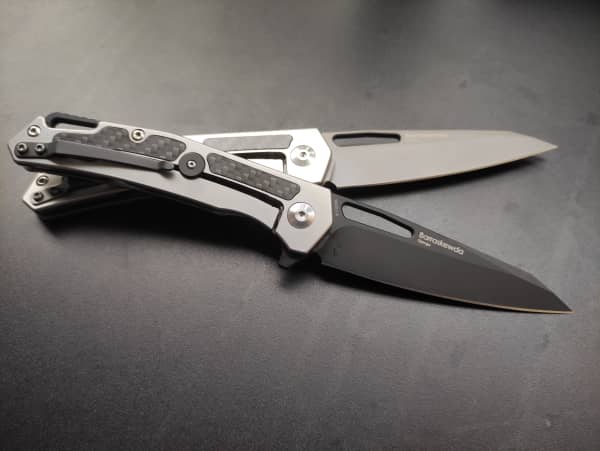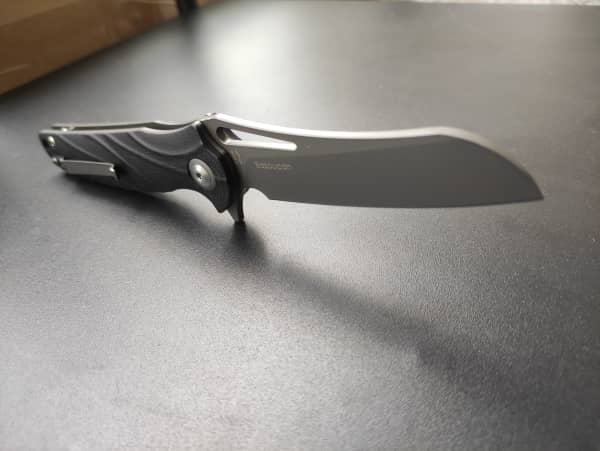There’s a lot that goes into designing a pocket knife. Many people assume it is all a matter of finding a blade and joining it to a handle. It is more than that. There are a number of considerations that have to be observed. Two of the most important ones are size and weight. How you handle the knife is dependent on these two factors.
We are going to explore how knife sizes and weight determine the functionality of the pocket knife and look at some of the tactics you can use to pick the right weight and size of your knife. If you have been thinking of buying a pocket knife, then this should help you in your search.
Does Size Matter?
When someone mentions the size of a knife, they are referring to a lot of things. They could be talking about the length of the blade, the width of the blade, or the size of the handle. Basically, all the parts that make up a knife. Do these matter in the long run? The answer is yes.
When it comes to pocket knives, the length of the blade will determine how efficient it is in handling and storage. The longer the blade, the more things you can handle. Smaller blades tend to be limited in reach, and they can only be used for limited things like close quarter combat for the defensive types of pocket knives or for cutting fishing lines and ropes.
Pocket knives that have longer blades are more versatile and hardy and can be used for a variety of tasks, making them the ideal knife to carry with you when you are planning an outdoor excursion. However, longer blades are very cumbersome when it comes to storage and carrying. A longer and wider blade means the knife has to have a bigger handle that can accommodate the blade comfortably. This may make the process of releasing the blade a little slower compared to shorter and smaller blades.
A typical pocket knife blade is about 2.5 inches long; the biggest one you can find is 4-inches. A good majority of multi-purpose pocket knife blades are found between these two ranges, and if you are looking for a well-balanced pocket knife that you can use for a variety of tasks, then a 3-inch blade will serve your needs just right.
What About the Weight
The weight of the knife is another factor that you have to consider when choosing a pocket knife. Generally, pocket knives are lighter than fixed knives as they are smaller in size, and their design is geared towards efficiency, and this ends up cutting down on unnecessary parts. However, they do need some weight for them to work efficiently.
The ability to cut through things depends on the force applied and the weight of the blade. If the knife is too light, then the force exerted will have to be more, and this could lead to injuries. There has to be a balance between the length of the blade and the overall weight of the knife. As a user, you need some leverage when applying force on the pivot points, and this can only work efficiently when the knife in question has the right weight.
The weight of the pocket knife depends on the material used both on the blade and the handle. Stainless steel is the most common material used for making blades, and it is the heaviest of the lot. The weight of the knife will depend on the amount of material used, and this is where finding that balance is important. Getting that part right is what separates the best knife manufacturers from those that have no clue about what they are doing.
Carbon steel is much lighter and more durable than stainless steel, but that comes at a cost. But if you are looking for a tactical knife that can sort you out in emergency situations, you will be better served by a carbon steel blade.
Choosing a Pocket Knife Based on Weight and Size
There’s no uniform size and weight for pocket knives. It all boils down to your intentions and purchasing power. But when it comes to making a choice, there are three main factors that should help you navigate this easily. They include the following.
Intended Use
The design and purpose of the knife should help you figure out the size of the blade and the weight of the knife. If you are looking for a hunting knife, then you should go for a longer and heavier knife that will help you with gutting up an animal after a successful hunting expedition. If you are looking for a knife you can use to whittle down a piece of wood, then a slender and short blade is what you should go for. Something that is light enough for you to hold in your hand for long.
Size of your Palms
If you have a bigger palm, then you must go for a knife that has a bigger blade to reduce the chances of injuring yourself. Having overly large palms will make it hard for you to handle something that your hand can cover entirely. At the same time, you need a heavy blade that you can feel in your hand when holding it. This is how you are able to control your grip for more efficiency.
Mode of Carrying
If you are the type that loves freedom when outdoors, then a smaller pocket knife with a shorter blade would suit you best as you can drop it in your backpack or your pocket, and you wouldn’t even feel it. But this will limit the things you can do. Outdoor pocket knives have to be large and strong.
Conclusion
The weight and the size of the knife are very important, and if this is your first time buying a knife, you should ask around before making a decision for a proper breakdown on how the two can affect your experience. For more information on this, check out our website (Shieldon – knife manufacturer) and have all the questions you may have answered by our team of experts.
You can also follow us through the following ways:
https://www.facebook.com/ShieldonCutlery
https://www.instagram.com/shieldon_knives_and_tools/
https://www.youtube.com/channel/UC_Dz–HODWHFY4AaUF0z11Q
https://twitter.com/Shieldonknives1/
https://shieldonknivesandtools.tumblr.com/
https://www.linkedin.com/company/72285346/
https://www.pinterest.com/shieldonknivesandtools/
More video introductions:








